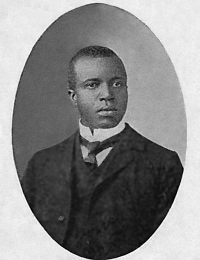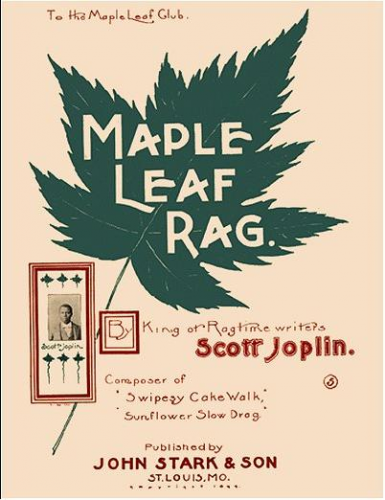Happy Birthday, Scott Joplin!
Share
Explore Our Galleries
Breaking News!
Today's news and culture by Black and other reporters in the Black and mainstream media.
Ways to Support ABHM?
From the African American Registry

Scott Joplin was born on this date in 1868. He was an African-American composer and pianist, one of the most important developers of ragtime music.
Born in Texarkana, TX, Joplin taught himself piano as a child, learning classical music from a German neighbor. In his teens he became an itinerant pianist in the low-life districts that provided the chief employment for black musicians. He settled in St. Louis in 1885. In 1893, he played at the World’s Colombian Exposition in Chicago, and in 1894 he moved to Sedalia, MO., where he published his “Original Rags” and “Maple Leaf Rag” and opened a teaching studio.
Scott Joplin moved to New York City in 1907 and four years later at his own expense, he published his ragtime opera “Treemonisha,” a work intended to go beyond ragtime to create an indigenous black American opera. Staged in a concert version in 1915, it failed with the audience, leaving the composer’s spirit permanently broken.
He died in 1917, not aware that eventually, his music would undergo a great revival after some of his compositions, including “The Entertainer,” were used as the background music in the film “The Sting” and “Treemonisha” was staged with great success in 1975 by the Houston Grand Opera.
Read more here.












Comments Are Welcome
Note: We moderate submissions in order to create a space for meaningful dialogue, a space where museum visitors – adults and youth –– can exchange informed, thoughtful, and relevant comments that add value to our exhibits.
Racial slurs, personal attacks, obscenity, profanity, and SHOUTING do not meet the above standard. Such comments are posted in the exhibit Hateful Speech. Commercial promotions, impersonations, and incoherent comments likewise fail to meet our goals, so will not be posted. Submissions longer than 120 words will be shortened.
See our full Comments Policy here.